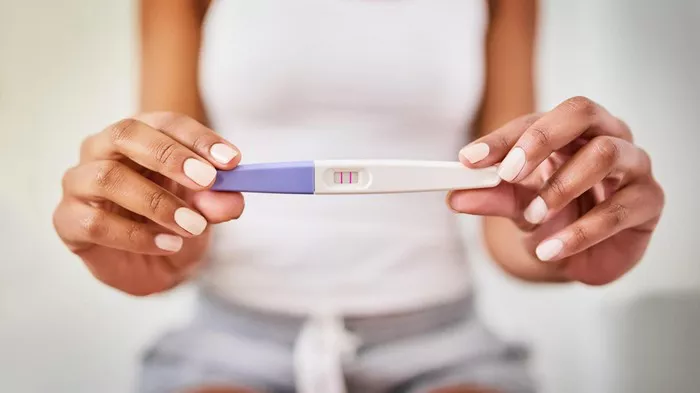Intrauterine devices (IUDs) are one of the most effective forms of birth control available today. They are over 99% effective at preventing pregnancy, making them a popular choice for women seeking long-term contraception. However, no method is entirely foolproof. So, is it possible to get pregnant with an IUD? The short answer is yes, though it is rare.
Understanding IUDs: Types and How They Work
Hormonal IUDs
Hormonal IUDs, such as Mirena, Kyleena, Skyla, and Liletta, release a small amount of progestin (levonorgestrel) into the uterus. This hormone thickens cervical mucus, inhibits sperm movement, and sometimes suppresses ovulation, making it very difficult for sperm to reach and fertilize an egg.
Copper IUDs
The copper IUD, known by the brand name Paragard, does not contain hormones. Instead, it releases copper ions that are toxic to sperm, making it nearly impossible for them to fertilize an egg. The copper IUD can also be used as emergency contraception if inserted within five days of unprotected sex.
IUD Effectiveness Rates
Both hormonal and copper IUDs boast effectiveness rates of over 99%. This means that fewer than 1 out of 100 women using an IUD will become pregnant each year. While these odds are extremely low, it’s important to recognize that pregnancy is still possible.
Reasons Pregnancy Can Occur with an IUD
Improper Placement
An IUD must be placed correctly inside the uterus to work effectively. If it is positioned too low or expelled without notice, it may not provide full protection. This is more likely to happen in the months following insertion, especially for women who have not given birth.
Expulsion
Partial or complete expulsion of the IUD can occur in up to 10% of users, often without noticeable symptoms. If the IUD is expelled or shifts from its proper position, it may not prevent pregnancy.
Perforation
Rarely, an IUD can perforate the wall of the uterus during insertion. This may allow sperm to bypass the contraceptive barrier and lead to pregnancy. Uterine perforation occurs in about 1 out of 1,000 insertions.
Product Failure
Although very rare, an IUD could be defective. Manufacturing errors can happen, and if an IUD fails to release hormones or copper correctly, its effectiveness may be reduced.
Use Beyond the Approved Timeframe
Each IUD is approved for use over a certain number of years—ranging from 3 to 12, depending on the brand and type. Using an IUD beyond its recommended lifespan increases the risk of pregnancy.
Signs of Pregnancy with an IUD
Missed Periods
For women using a copper IUD, a missed period is a strong indicator of pregnancy. However, those using hormonal IUDs may experience lighter or irregular periods, making it more difficult to notice a missed cycle.
Nausea and Fatigue
Common early pregnancy symptoms, such as nausea, breast tenderness, fatigue, or increased urination, may be present even with an IUD in place.
Abnormal Cramping or Pain
Sharp pelvic pain or persistent cramping could suggest an ectopic pregnancy, especially if accompanied by dizziness or shoulder pain. Ectopic pregnancies are more common in women who become pregnant with an IUD.
Pregnancy Risks Associated with IUDs
Ectopic Pregnancy
An ectopic pregnancy occurs when a fertilized egg implants outside the uterus, usually in the fallopian tube. Although IUDs greatly reduce the overall risk of pregnancy, if pregnancy does occur, it is more likely to be ectopic. This is a medical emergency requiring immediate attention.
Miscarriage
If a woman becomes pregnant with an IUD still in place, the risk of miscarriage increases. Leaving the IUD in place during pregnancy also raises the risk of infection, premature birth, and other complications.
What to Do If You Suspect Pregnancy
Take a Pregnancy Test
If you suspect pregnancy while using an IUD, the first step is to take an at-home pregnancy test. If the result is positive, contact your healthcare provider immediately.
Get a Physical Examination
Your doctor will likely perform a pelvic exam and an ultrasound to confirm the pregnancy and determine whether the IUD is in place. If the IUD can be safely removed, doing so may lower the risk of complications.
Monitor for Symptoms of Ectopic Pregnancy
Because of the increased risk of ectopic pregnancy with an IUD, any symptoms like severe abdominal pain, shoulder pain, or heavy bleeding should prompt immediate medical evaluation.
Can You Continue a Pregnancy with an IUD?
Removing the IUD
In some cases, a doctor may be able to remove the IUD during early pregnancy without causing harm to the developing fetus. Removal is often recommended because leaving the IUD in place increases the risk of miscarriage and infection.
Continuing the Pregnancy with the IUD in Place
If removal isn’t possible, some women may choose to continue the pregnancy with the IUD in place. This decision requires close monitoring by a medical professional, as risks to both mother and baby remain elevated.
Preventing Pregnancy with an IUD
Regular Checkups
Regularly checking the IUD strings at home and attending follow-up appointments with your doctor can help ensure the device is in place and functioning properly.
Prompt Action if Expulsion Occurs
If you notice that the strings are missing, or if you feel the plastic part of the IUD at your cervix, it may have moved or been expelled. Use backup contraception and contact your doctor as soon as possible.
Final Thoughts
Although the chances of becoming pregnant with an IUD are extremely low, it’s still possible. Understanding the signs of pregnancy and the potential complications associated with it is crucial for anyone using this form of birth control. If you suspect a pregnancy or notice changes in your body, prompt medical evaluation is key to ensuring your health and safety. Regular IUD checkups and awareness of your reproductive health can help maintain the effectiveness of this reliable contraceptive method.
You Might Be Interested In:

